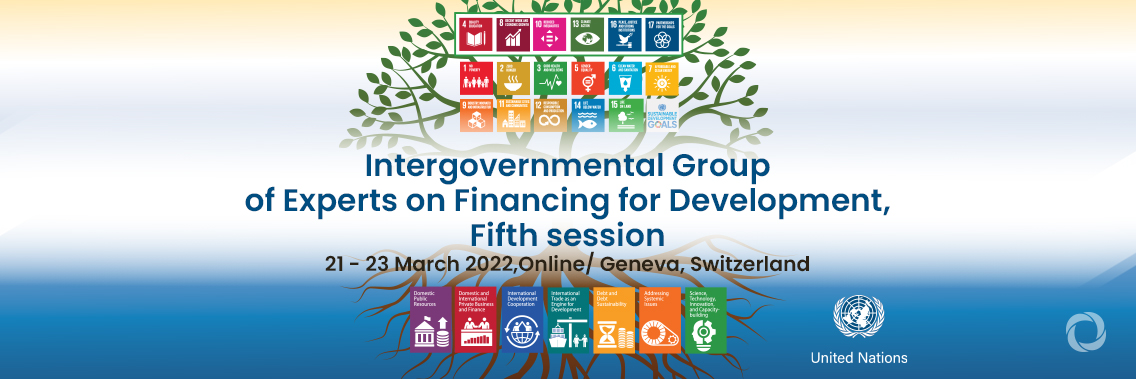📅 21 – 23 March 2022
Online/Geneva, Switzerland
There is, by now, little doubt that the economic fallout from the ongoing COVID-19 pandemic is set to further widen pre-pandemic financing gaps to achieve the 2030 Agenda for Sustainable Development.
While the nature and global reach of the COVID-19 crisis are exceptional for now, combined health, environmental, economic, and financial crises may soon become the rule rather than the exception. It will therefore be important to turn the current crisis into an opportunity to rethink coordinated policies to scale up development finance from public, private, domestic, and external sources.
Building back better requires “looking back to move forward”. During the COVID-19 crisis, long-standing external constraints on domestic financial resource mobilization have become starkly apparent. A squeezed fiscal policy space, due to higher pandemic-related finance needs and falling public revenue because of lower levels of economic activity, combined with rising external debt burdens and high servicing costs on these, a steep fall in private external finance, and an overall muted crisis response by international actors.
This would suggest an urgent need for a wider rethinking on how public oversight, control, and planning, at the international, regional, and national levels, can be leveraged more effectively to ensure a combined public and private delivery of development finance and planning, not only in terms of the volume of this finance but also in terms of directing those funds towards developmental purposes and infrastructure projects.
Some progress would also be required beyond the international community’s current focus on supporting improved tax reforms and debt transparency in (the debtor) developing countries to widen these to include internationally coordinated measures needed to alleviate external constraints on domestic (and regional) resource mobilization and to increase financial transparency in international capital markets.

